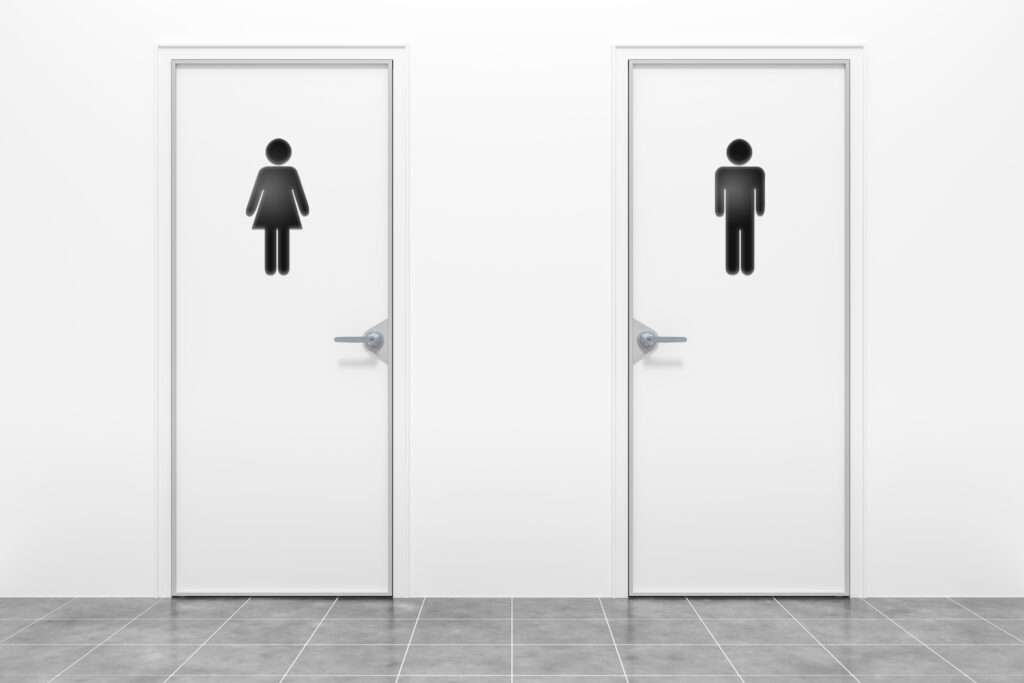25 Tech Laws Slated To Take Effect in 2025

When it comes to technology, free speech, and new laws, the big question going into 2025 is whether the U.S. Supreme Court will allow a TikTok ban to take effect on January 19. Along with that possible change, a bevy of lower-profile tech laws—some good, mostly bad—are slated to take effect across the U.S. in the upcoming year, with many going into effect on January 1.
For today’s newsletter, I’ve rounded up some of the most notable ones, which include bans on teens using social media (Florida and Tennessee), age verification requirements for porn websites (Florida and Tennessee), a law ordering online platforms to remove “deceptive” election-related content (California), and a law limiting law enforcement use of images collected by drones (Nevada).
This list is not comprehensive. But I looked through a lot of laws taking effect in various states, so it’s a decent overview of what’s coming.
Age Verification and ‘Protecting’ Minors From Social Media, Porn
Florida is banning younger teens from social media and requiring ID checks for online porn: House Bill 3—a law with implications for both adult websites and social media platforms—takes effect on January 1, though part of it won’t be enforced yet due to a legal challenge. The law bans anyone in Florida under age 14 from using social media, and it requires parental permission for 14- and 15-year-olds to have social media accounts. It also requires online platforms that publish “materials harmful to minors”—by which it means all sorts of depictions or descriptions of sexuality—to ban visitors under age 18, which of course requires checking the ages of all visitors to porn websites.
“The law adds hefty fines and civil liabilities for any social media sites that knowingly violate the law,” reports The Palm Beach Post. “Hefty fines” will also be levied against web publishers in violation of the sexual content portion. Florida’s attorney general said the social media part will not enforced yet, pending a decision requiring a motion for a preliminary injunction against that part. A hearing on that motion is scheduled for February.
Tennessee is requiring ID checks for social media, online porn: House Bill 1891—the Protecting Minors From Social Media Act—requires social media companies to age-verify users and prevent those under age 18 from opening accounts without parental permission. Senate Bill 1792 says adult content platforms must verify user ages.
California is coming for social media algorithms: Assembly Bill 976 takes effect in January. It “prohibits online platforms from knowingly providing an addictive feed to a minor without parental consent,” per Gov. Gavin Newsom’s office. The state defines an addictive feed to be basically any feed that relies on a personalized recommendation algorithm. “The bill also prohibits social media platforms from sending notifications to minors during school hours and late at night,” Newsom’s office says.
In 2025, social media platforms are required to implement these rules only when they have “actual knowledge” that an account is held by a minor. But beginning in 2027, “the law expands this threshold to when the social media platform ‘has reasonably determined’ a user is a minor,” according to Global Policy Watch.
AI Regulations

California is regulating election-related “deepfakes,” digital replicas: California lawmakers in 2024 passed a slew of new laws aimed at AI-created content. Assembly Bill 1836 “updates current law to prohibit the use of a deceased person’s voice or likeness in digital replicas without the prior consent of their estate,” according to the law firm Fisher Phillips. “The law imposes statutory damages of either $10,000 or the actual damages suffered (whichever is greater), and removes existing exemptions for film, TV, audiovisual works and more when it comes to digital replication.” Assembly Bill 2602 deals with contracts related to services that involve digital replicas. Assembly Bill 2355 says political ads that use AI-generated content must contain a disclosure saying “This ad was generated or substantially altered using artificial intelligence.” Another new law (Assembly Bill 2839) relates to malicious distribution of “materially deceptive audio or visual media of a candidate within 60 days of an election.” Additionally, the state passed a law (Assembly Bill 2655) concerning “deepfakes” that would require online platforms to label or remove “materially deceptive content” related to elections. It is supposed to take effect in January but in October a federal judge put it on pause.
Illinois is banning AI-generated child porn, nonconsensual digital replicas: Two new Illinois laws related to artificial intelligence (AI) are slated to take effect this week. House Bill 4623 bans AI-generated sexually explicit images of minors. House Bill 4875 bans using an AI-created version of someone’s voice, image, or likeness for commercial purposes without obtaining the consent of the person replicated. Both laws take effect on January 1.
Miscellaneous
California sets out to manage money of influencers: Two laws taking effect in January deal with money earned by minors who make money from online videos or other content. Senate Bill 764 says that when adults monetize online video or photo content in which “at least 30 percent of the…content includes the likeness, name, or photograph” of a minor, they must put 15 percent of their gross earnings into a trust for that minor.
Meanwhile, Assembly Bill 1880 sets out trust requirements for money made by minors themselves online. This expands an existing law (the Coogan Law) concerning child performs “to include minors who are employed as content creators on online platforms, such as YouTube,” per Newsom’s office. “The Coogan Law is a decades-old statutory scheme that protects child performers and creators by ensuring that their employers place at least 15 percent of their gross earnings in trust till they reach adulthood.”
California lets schools limit cellphone use: Senate Bill 1283 says that “the governing board of a school district, a county board of education, or the governing body of a charter school may adopt a policy to limit or prohibit the use by its pupils of social media while the pupils are at a schoolsite or while the pupils are under the supervision and control of an employee or employees of that school district, county office of education, or charter school.”
Nevada limits law-enforcement use of drones: “Beginning the first of the year, Nevada state government and local law enforcement cannot purchase a drone which is not approved by the federal government,” notes Fox 5 Vegas. “The law also deals with drones used to check building compliance and fire codes. Images captured cannot be used in criminal or civil litigation to prove reasonable suspicion or probable cause.”
Vermont is requiring digital access to government meetings: Staring in January, “all state decision-making bodies will be required to hold all regular and special meetings in both a physical location, and on an electronic platform,” reports Vermont Public Radio.
Data privacy laws are taking effect in 8 states: I haven’t had time to look closely at any of these, which vary in their particulars. But from a very cursory glance it seems that much of these new mandates will simply force compliance headaches on tech companies while making very little difference for consumers and perhaps requiring us to check yet more permission boxes each time we visit a website.
More Sex & Tech News

• An Ohio bill banning students from using multi-person bathrooms that don’t match their biological sex takes effect on January 1. Called the Protect All Students Act, it applies to kindergartens through colleges. The law says schools—including private schools— must designate bathrooms, locker rooms, and overnight accommodations as either exclusively male or female. Schools may still offer bathrooms designed for a single person and/or family bathrooms.
• Rep. Shri Thanedar (D–Mich.) is calling for the decriminalization of sex work. “We should decriminalize sex work to maximize sex workers’ legal protection and their ability to exercise other rights, including unionization, justice, and health care,” he wrote on X last week. “Decriminalization and regulation would prevent trafficking and exploitation of minors.”
• A federal judge has struck down an Arkansas law that opened librarians to criminal penalties and could be used to limit books related to sex, gender, sexuality, or any adult themes. “The law deputizes librarians and booksellers as the agents of censorship; when motivated by the fear of jail time, it is likely they will shelve only books fit for young children and segregate or discard the rest,” wrote U.S. District Judge Timothy Brooks.
• The Verge explains the European Union’s new USC-C charging mandate.
• At Wired, Angela Saini argues that plummeting fertility rates will be bad news for women’s autonomy.
• A California law taking effect in January raises the penalties for certain solicitation offenses involving a minor. (This newsletter covered the controversy surrounding this measure, Senate Bill 1414, earlier this year.)
Today’s Image

The post 25 Tech Laws Slated To Take Effect in 2025 appeared first on Reason.com.
Source: https://reason.com/2024/12/30/25-tech-laws-slated-to-take-effect-in-2025/
Anyone can join.
Anyone can contribute.
Anyone can become informed about their world.
"United We Stand" Click Here To Create Your Personal Citizen Journalist Account Today, Be Sure To Invite Your Friends.
Before It’s News® is a community of individuals who report on what’s going on around them, from all around the world. Anyone can join. Anyone can contribute. Anyone can become informed about their world. "United We Stand" Click Here To Create Your Personal Citizen Journalist Account Today, Be Sure To Invite Your Friends.
LION'S MANE PRODUCT
Try Our Lion’s Mane WHOLE MIND Nootropic Blend 60 Capsules
Mushrooms are having a moment. One fabulous fungus in particular, lion’s mane, may help improve memory, depression and anxiety symptoms. They are also an excellent source of nutrients that show promise as a therapy for dementia, and other neurodegenerative diseases. If you’re living with anxiety or depression, you may be curious about all the therapy options out there — including the natural ones.Our Lion’s Mane WHOLE MIND Nootropic Blend has been formulated to utilize the potency of Lion’s mane but also include the benefits of four other Highly Beneficial Mushrooms. Synergistically, they work together to Build your health through improving cognitive function and immunity regardless of your age. Our Nootropic not only improves your Cognitive Function and Activates your Immune System, but it benefits growth of Essential Gut Flora, further enhancing your Vitality.
Our Formula includes: Lion’s Mane Mushrooms which Increase Brain Power through nerve growth, lessen anxiety, reduce depression, and improve concentration. Its an excellent adaptogen, promotes sleep and improves immunity. Shiitake Mushrooms which Fight cancer cells and infectious disease, boost the immune system, promotes brain function, and serves as a source of B vitamins. Maitake Mushrooms which regulate blood sugar levels of diabetics, reduce hypertension and boosts the immune system. Reishi Mushrooms which Fight inflammation, liver disease, fatigue, tumor growth and cancer. They Improve skin disorders and soothes digestive problems, stomach ulcers and leaky gut syndrome. Chaga Mushrooms which have anti-aging effects, boost immune function, improve stamina and athletic performance, even act as a natural aphrodisiac, fighting diabetes and improving liver function. Try Our Lion’s Mane WHOLE MIND Nootropic Blend 60 Capsules Today. Be 100% Satisfied or Receive a Full Money Back Guarantee. Order Yours Today by Following This Link.






